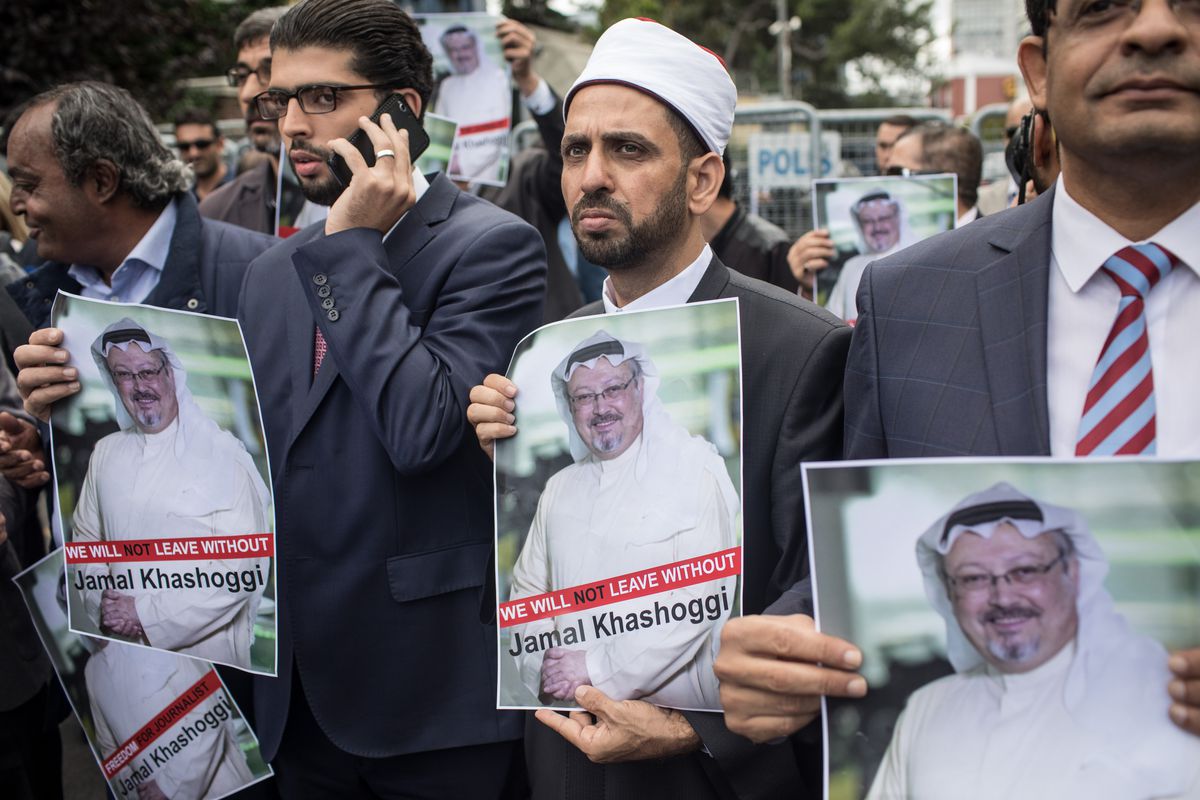Protecting Economic Interests or Human Rights?: The International Community’s Response to Jamal Khashoggi’s Murder

by Sarah McKinnis
[divider]
[dropcap]I[/dropcap]t has been over five weeks since the disappearance and subsequent murder of prominent Saudi critic and journalist Jamal Khashoggi, yet the global community is still hesitant to hold Saudi Arabia accountable for this blatant violation of international law. Khashoggi went missing on October 2, 2018, after entering the Saudi consulate in Istanbul to retrieve documents so that he could marry his fiancée, Hatice Cengiz, who was waiting outside the consulate for him. Initially, Saudi Arabia denied any involvement in the situation, claiming that Khashoggi left the building alive the same day. Almost three weeks later, however, the government released a statement on Saudi state television announcing that Khashoggi had died after an interrogation turned into a physical fight. Turkish officials, in contrast, have claimed that they obtained recordings of Khashoggi being interrogated and beaten, and that he was killed and dismembered. On November 10, Turkey’s President Erdoğan revealed that he passed on recordings related to Khashoggi’s death to Saudi Arabia, the United States, Great Britain, Germany, and France, a move that could bring clear details to the story and force these countries to act in the interest of supporting human rights.
An ongoing investigation by the Turkish government has revealed that fifteen men flew from Riyadh, Saudi Arabia, and arrived in Istanbul on Tuesday, the day Khashoggi disappeared. Turkey suspects that these men are responsible for his death. Many of them have connections to the highest levels of Saudi government; most come from elite units of the military and intelligence agencies, and four are from the Crown Prince’s personal detail. Due to the operation’s proximity to Crown Prince Mohammed bin Salman, many officials, including President Erdoğan and a number of U.S. Congresspeople, believe that this could not have been carried out without his knowledge, a huge blow to the 33-year-old’s already questionable reputation as a liberal reformer.
Since coming to power, Mohammed bin Salman, known in political circles as MbS, has introduced a path to social reform and economic opening, calling for the kingdom to return to a more moderate interpretation of Islam. He has reigned in the power of the religious police and worked, albeit slowly, to dismantle gender segregation, most notably allowing women to drive, beginning in June 2018. Saudi Arabia has delineated its vision for the future in “Vision 2030,” a blueprint for several transformative programs. The document promotes Saudi Arabia as a “global investment powerhouse,” claiming that their vision is “a tolerant country,” ready to welcome people from all around the world. However, the regime has in no way been tolerant of dissent. Saudi Arabia is consistently ranked as one of the ten most censored countries in the world by the Committee to Protect Journalists, and reportedly jailed seven journalists in 2017 based on the content of their work.
Still, because of the trend of social liberalization and the influential role that Saudi Arabia plays in many countries’ economies, particularly in regards to oil and arms sales, certain democracies have been quick to turn a blind eye to the regressive political environment and the aforementioned human rights abuses that they would, in many other situations, condemn. This tendency is evident in the responses to Khashoggi’s disappearance by the United States and other major international actors. The U.S. revoked and blocked visas for 21 suspects, but has yet to take further action. USA Today quoted Trump after he spoke with the crown prince, saying, “He says he is not involved nor is the king,” and reported that Trump declined to comment on whether or not he believed the crown prince’s denial. The Trump administration has emphasized the importance of the U.S.-Saudi relationship, and Trump himself has said that the response should not involve abandoning arms sales, worth billions of dollars, because of the destructive impact it would have on U.S. jobs and the defense industry. Indeed, Saudi Arabia’s position as the world’s largest arms importer has given it leverage in this situation against the U.S. and other major arms manufacturers, including the United Kingdom and France, both of whom have held back from the European Parliament’s call for a ban on arms sales to Saudi Arabia. The lack of response from the U.S. has been criticized by Khashoggi’s fiancée herself, who was invited to visit the White House, but declined, saying she would only meet with President Trump if he “makes a genuine contribution to the efforts to reveal what happened inside the Saudi consulate in Istanbul that day.” The Trump administration has promised to take further action, but has not elaborated on what that will be.
Despite the overwhelming evidence pointing to the involvement of Crown Prince Mohammed bin Salman in Khashoggi’s death, major democracies like the U.S. and the U.K. have failed to take impactful punitive actions. This suggests that their economic interests have become of larger importance than the protection of human rights internationally. In light of their relative inaction, it appears that although Khashoggi’s brutal murder may be a detriment to Saudi Arabia’s world image, the international community has not condemned their actions with enough force for it to be destructive to their long-term development. The U.S., Canada, Britain, and France have refrained from banning arms sales to the Saudis, and China, another major economic partner, has stayed silent over Khashoggi’s killing. Unless they pull out of trade deals and impose legitimate economic sanctions on Saudi Arabia, Mohammed bin Salman and the rest of the Saudi regime will only continue to carry on in this fashion, expanding and limiting their citizens’ rights to suit their political vision. The lack of concern for human rights portends further abuses by Saudi Arabia and countries such as Russia and China, who rely on their economic importance to soften international responses.
[hr]
Sarah is a first-year in Trumbull College. You can contact her at sarah.mckinnis@yale.edu.